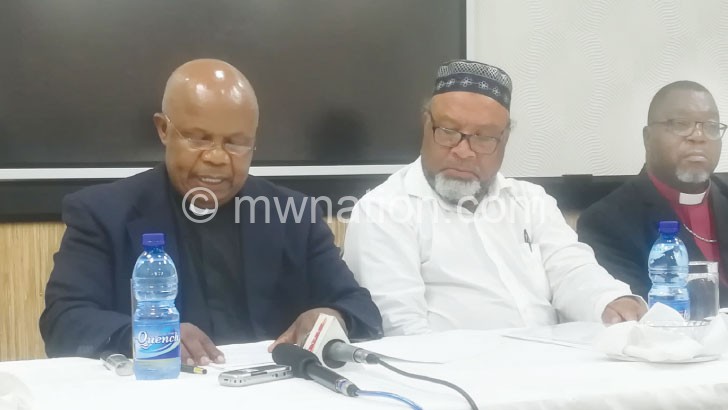PAC supports MEC boundary review
Quasi-religious group Public Affairs Committee (PAC) has pledged its support for the constituency and ward boundary demarcation exercise the Malawi Electoral Commission (MEC) is conducting, but appeals for a transparent and credible process.
In an interview on Wednesday after meeting MEC at Sunbird Ku Chawe in Zomba, PAC chairperson Monsignor Reverend Patrick Thawale said his organisation expects MEC to accommodate input from various stakeholders consulted.

He said: “As PAC, our view is that if constituencies are increased and it serves the purpose of respecting each individual’s vote, then we will go for it.”
MEC met PAC as part of its ongoing consultations with various stakeholders ahead of the September 2025 general elections.
Thawale said on their part as religious leaders, they will engage their followers to sensitise them through sermons and other church gatherings to the whole process, bearing in mind the importance of the exercise.
He also said there was need for Malawians to know their rights and responsibilities so that they know how they can contribute effectively to the processes.
In a separate interview, MEC chairperson Chifundo Kachale allayed fears of political influence in the process, stressing that they are doing everything in a transparent manner.
“We are ensuring that we are showing the methodology we are using with all the stakeholders very openly and also assuring them that when we are developing preliminary maps, they are going to have an opportunity to give us their feedback before we make the final report,” he said.
Kachale, who is a judge of the High Court of Malawi, said by ensuring that the whole process was open, the electoral body was of the view that people will have confidence in the outcome of the whole exercise.
Besides, he said that even politicians can make their inputs by submitting recommendations and views so that they do not hijack the process, emphasising that Section 76 (2) of the Constitution is clear that when doing such an exercise must be done impartially.
According to Kachale, the consultation process on the boundary review exercise has generated interest among Malawians since the last review exercise was done in 1998; hence, expectations are high on how wards and constituencies will be demarcated.
In light of such, he said MEC is keen on explaining that the whole process will not be an arbitrary activity.
The call to have big constituencies split have been made by various stakeholders, including President Lazarus Chakwera and Vice-President Saulos Chilima during the May 21 2019 Tripartite Elections campaign.
MEC anticipates that the general outcome of the exercise is that no council will lose an existing constituency. However, considering the formula it has adopted and other considerations as provided by the law, some councils might gain constituencies.
MEC said it believes the determination and review of the boundaries will not be arbitrary as the commission has devised a standard formula named National Quotient (NQ) that will be applied nationwide.
In 2017, various stakeholders called for the splitting of constituencies that are deemed big in terms of area and population.
The demarcation exercise was recently delayed after President Lazarus Chakwera fired two MEC commissioners Jean Mathanga and Linda Kunje, a development which disabled MEC operations.
The last time Malawi reviewed constituency boundaries was in 1999 when 16 more constituencies were created, increasing the number from 177 to the current 193.





